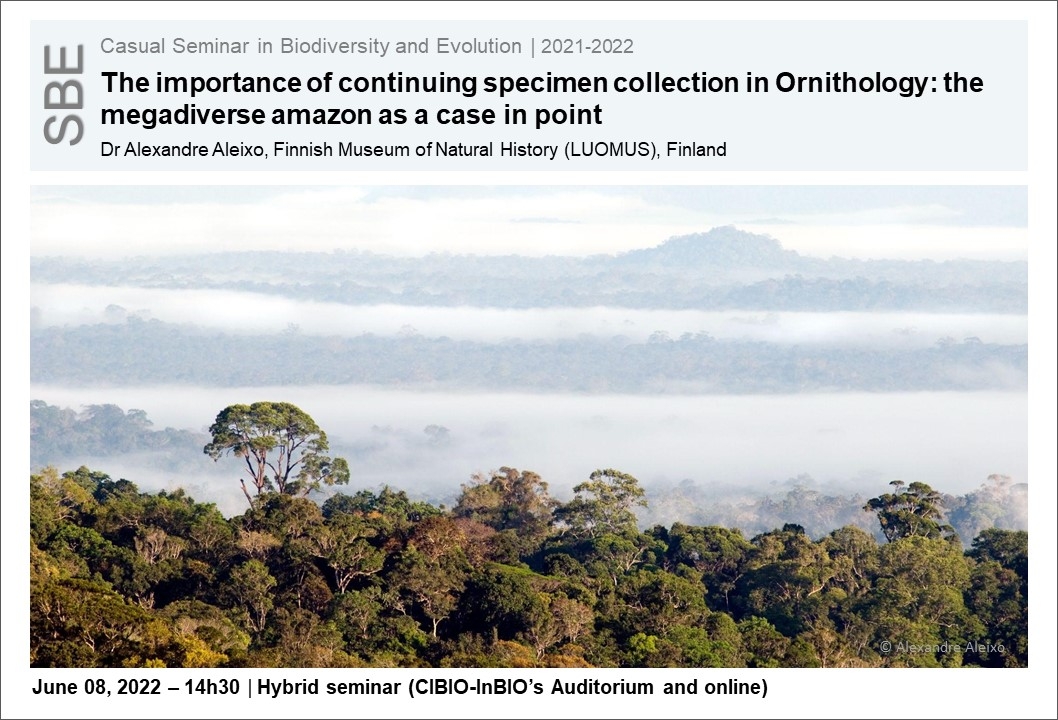The importance of continuing specimen collection in Ornithology: the megadiverse amazon as a case in point
08 Jun 2022 - Dr Alexandre Aleixo, Finnish Museum of Natural History (LUOMUS), Finland | 14h30 | Hybrid seminar

CASUAL SEMINAR IN BIODIVERSITY AND EVOLUTION
The mega-diverse Amazonian lowlands are a central area for discussions on processes that drive biotic diversification as well as those on the modern climate-crisis era given its paramount role as a carbon storage and sink ecosystem. Historically, the study of Amazonian biogeography evolved from documenting the ranges of closely related taxa based on specimens collected throughout the basin, to estimating phylogeographies and phylogenies based on molecular data (mainly DNA sequencing) obtained from tissue samples. Herein, I discuss how specimen-based research and biological collections have played a central role in these studies, leveraging our knowledge on the origins and full-extent of Amazonian biodiversity. Finally, future perspectives in genomics applied to mega-diverse regions, and how they can rely on specimen-based research, are also provided.
Alexandre Aleixo is the curator of the ornithological, osteological, and vertebrate tissue collections at the Finnish Museum of Natural History. He collects and uses specimens deposited in biological collections to study the evolutionary processes driving the diversification of modern birds and other vertebrate taxa. His research interests encompass the fields of biogeography, historical ecology, genomic adaptation, molecular systematics, phylogeography, and taxonomy.
[Host: Ricardo Jorge Lopes, Conservation Genetics and Wildlife Management - CONGEN]